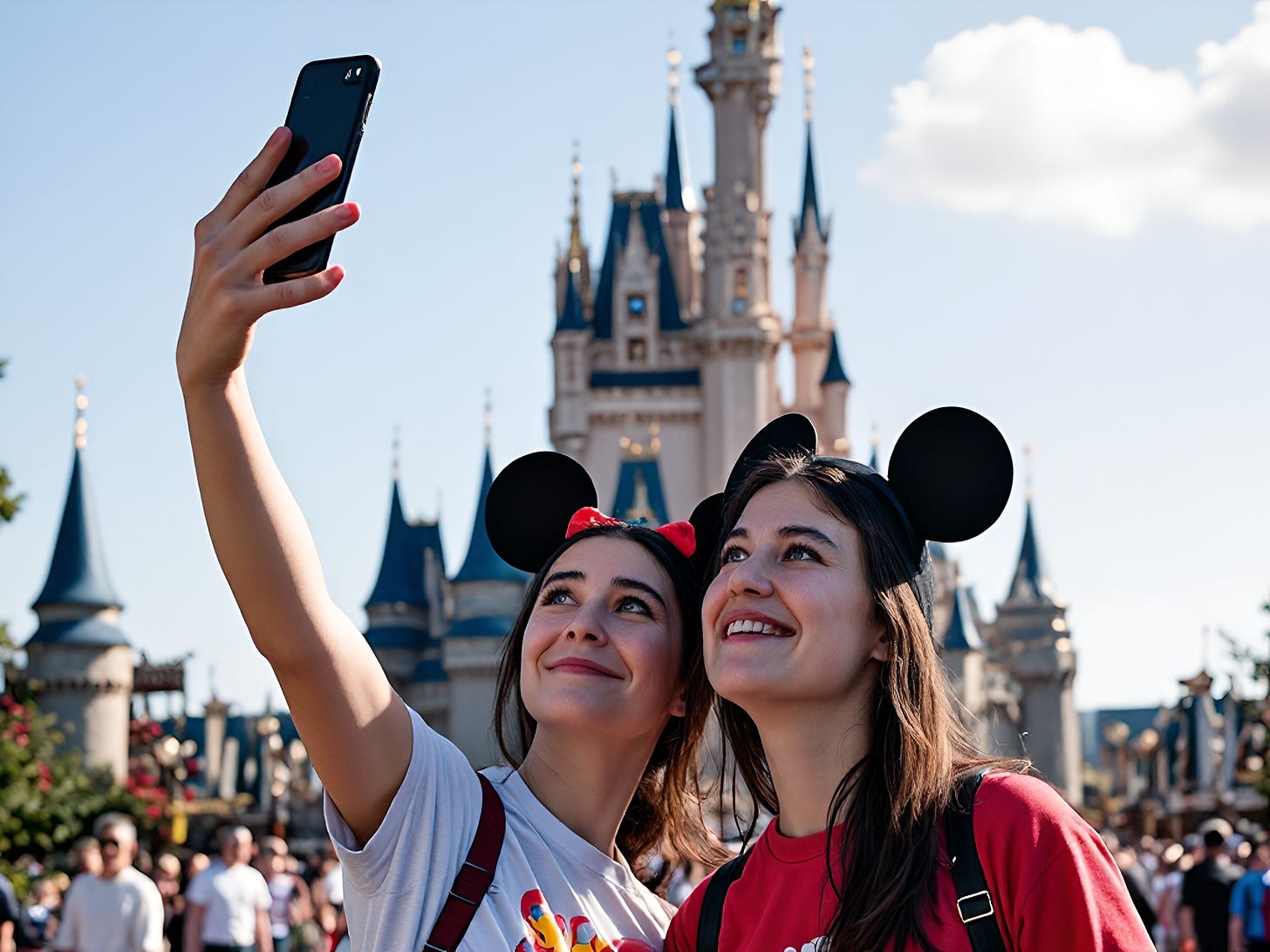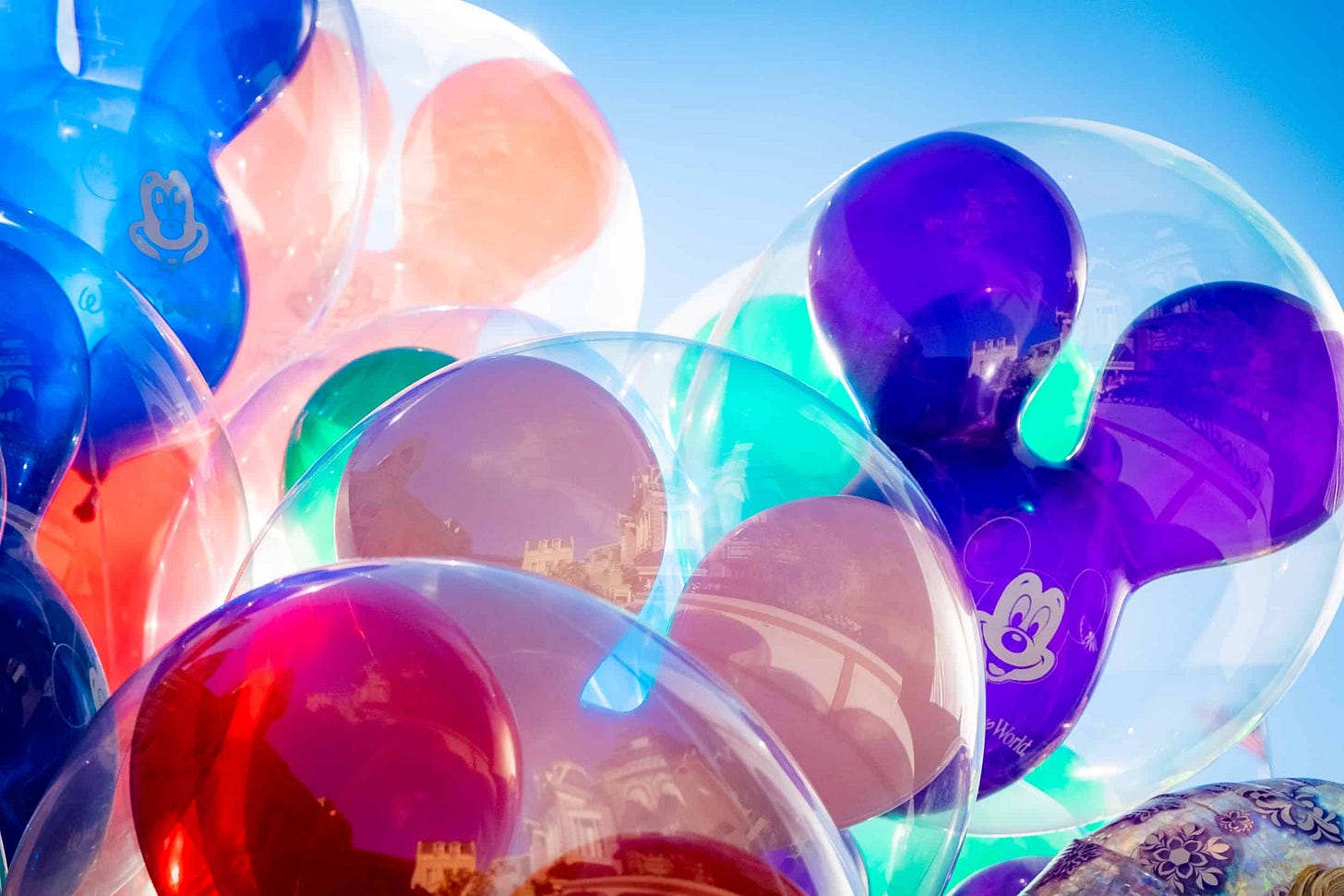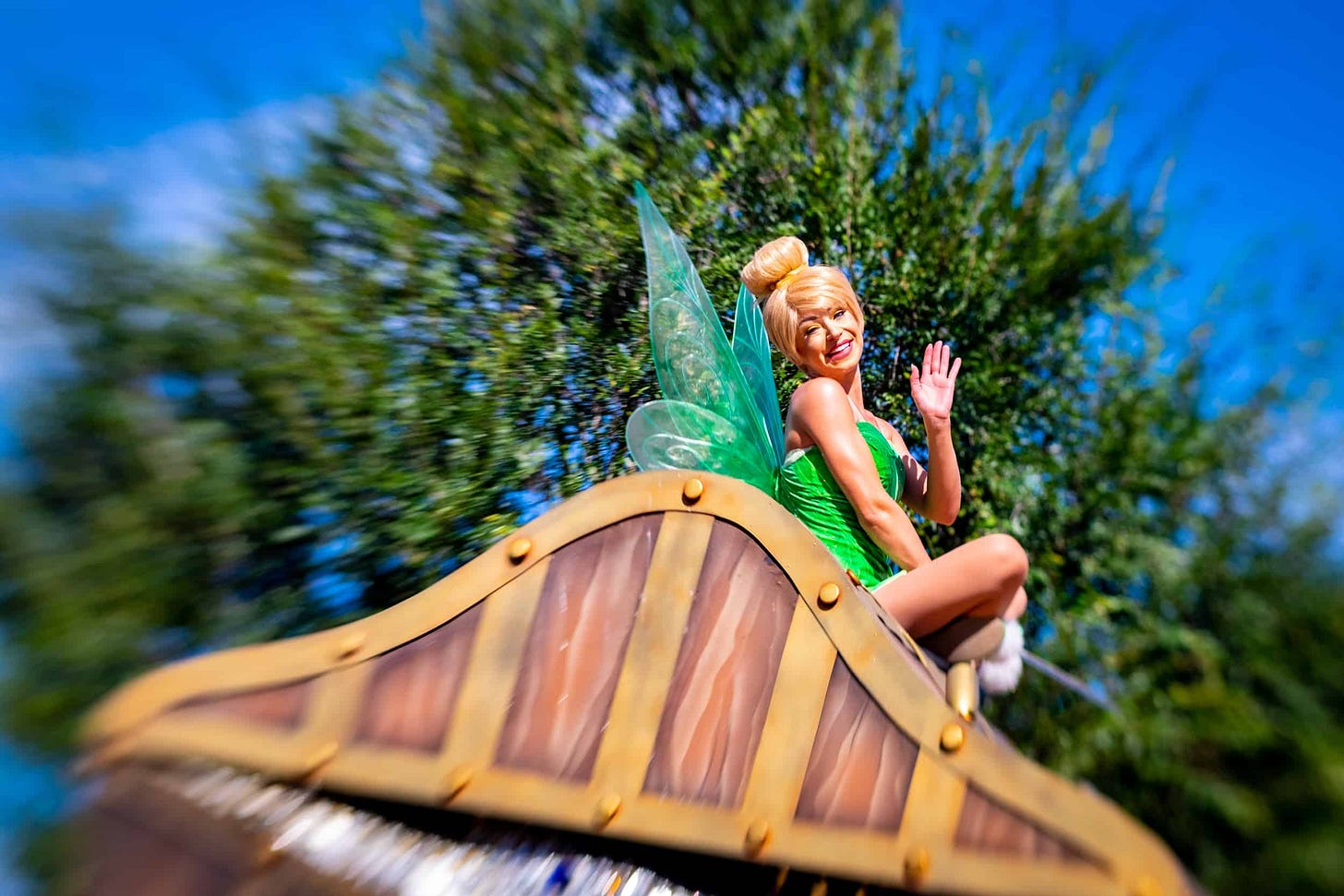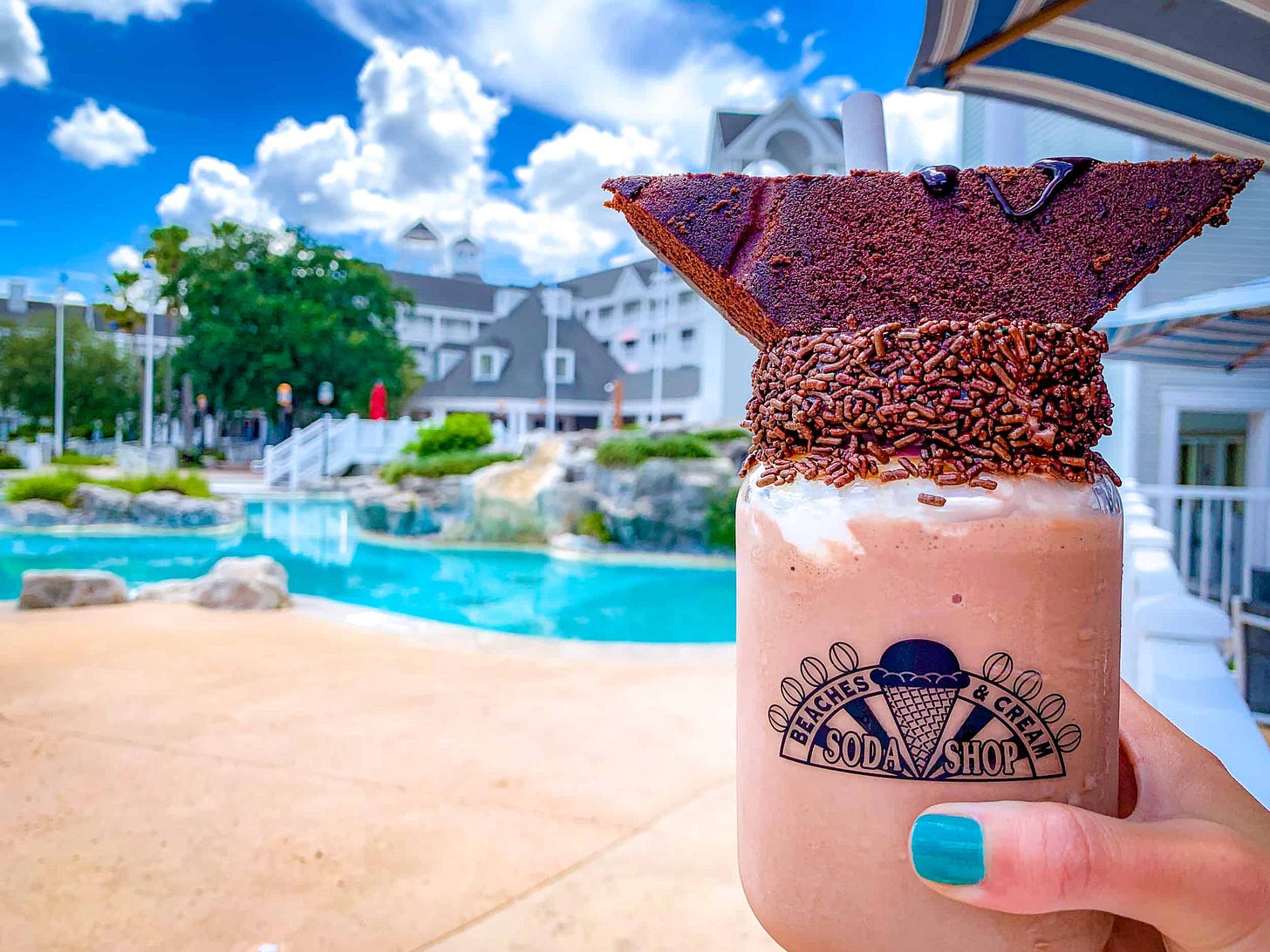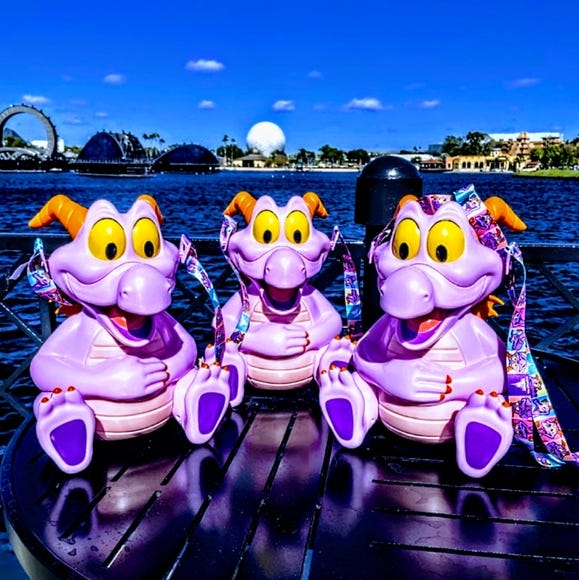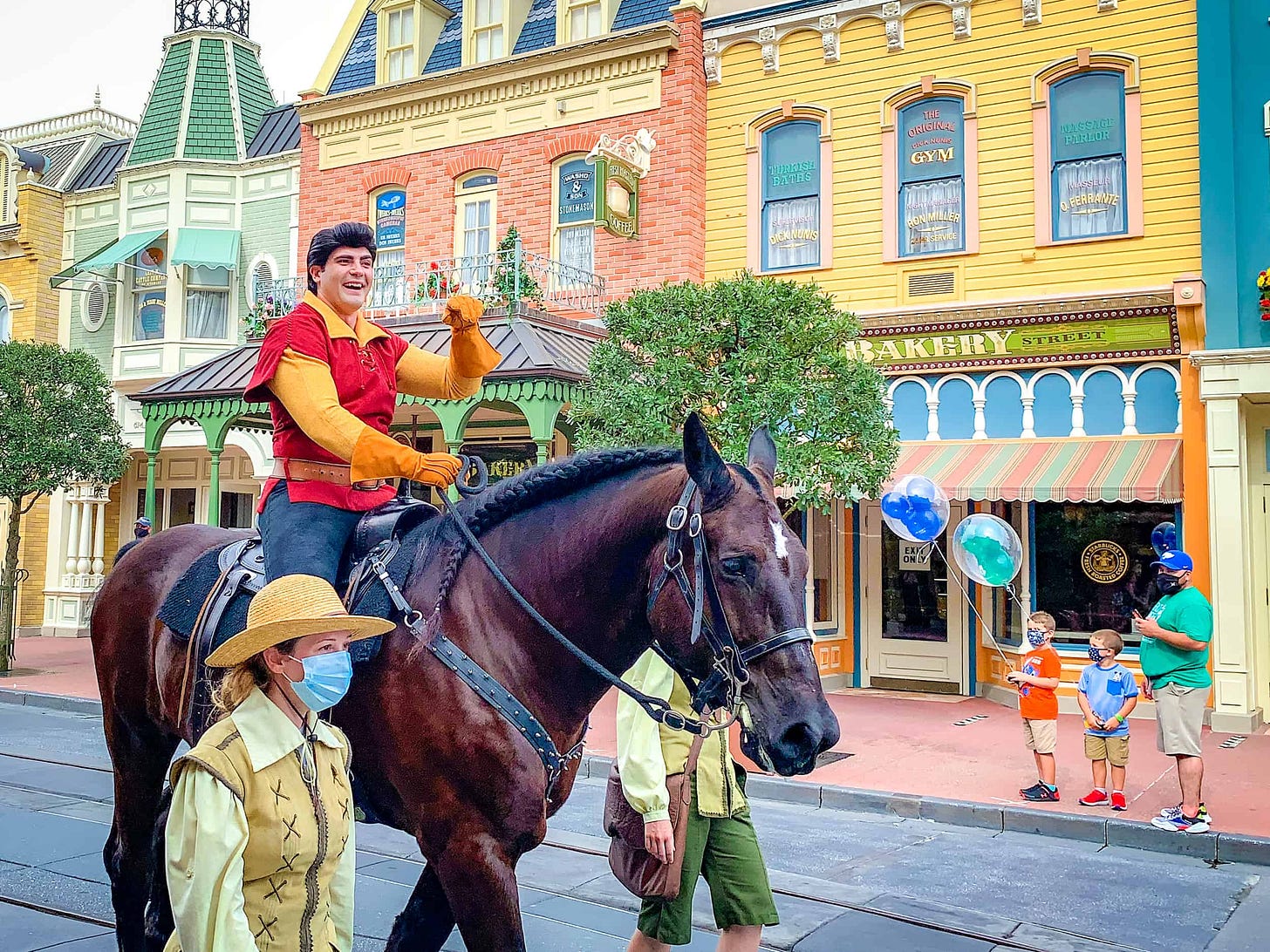In the vast, chaotic kingdom of online discourse, few groups spark as much gleeful vitriol as "Disney adults." Picture this: a grown-up in mouse ears, clutching a $50 popcorn bucket shaped like a castle, weaving through theme park crowds with the fervor of a kid on Christmas morning.
Harmless fun, right?
Wrong, according to the internet's self-appointed judges, who roast these superfans harder than a Dole Whip under the Florida sun. But amid the memes and mockery, is there more to this phenomenon than just arrested development? Let's unpack the magic—and the malice—behind Disney's most devoted grown-up disciples.
Here’s the TL;DR…
Disney adults defined: Grown-ups obsessed with all things Disney, from park visits sans kids to hoarding merch like it's the last churro on Earth.
Hate origins: Stem from perceptions of immaturity, consumerism, and "stealing" kid experiences, amplified by social media echo chambers.
Historical roots: Not a new fad—adults have flocked to Disney since the 1950s, but the label exploded in the 2010s via Tumblr and TikTok.
Demographics snapshot: Mostly millennials (ages 27-42), often childless, with a mix of income levels but a penchant for splurging on nostalgia.
When it goes too far: Extreme cases—like park brawls or bankruptcy for merch—show fandom can tip into obsession, fueling critics' fire.
Misunderstood magic?: Critics say they're cringe; defenders argue it's harmless escapism in a grim world—plus, they keep the parks profitable.
Media roasts: From Rolling Stone deep dives to viral YouTube takedowns and comedian rants, the pile-on is real and relentless.
What Exactly Are Disney Adults?
Let's start with the basics, because not every adult who hums "Hakuna Matata" while doing laundry qualifies. A Disney adult is essentially a devout fan of the Walt Disney Company empire—movies, merch, cruises, you name it—who integrates that fandom into their core identity. We're talking frequent solo trips to Disneyland or Walt Disney World, collecting limited-edition mouse ears like they're Pokémon cards, and maybe even decking out their home in themed decor that screams "I peaked in the '90s."
The term isn't always derogatory at first glance. Some self-identify proudly, like the folks who drop serious cash on Disney fitness trackers or branded weddings. But cross the line into "making it your whole personality," as one Reddit user put it, and you're entering punchline territory. Think of it as the adult equivalent of a Trekkie, but instead of debating warp drives, they're arguing over which EPCOT pavilion serves the best margaritas. Harmless? Sure. But in the eyes of critics, it's a red flag waving from the top of Cinderella's Castle.
A Brief History of Grown-Ups Chasing the Mouse
Disney adults didn't just poof into existence like a fairy godmother's spell. The phenomenon traces back to July 17, 1955, when Disneyland opened its gates in Anaheim, California. Walt Disney himself envisioned the park as a place for all ages, famously noting in a 1963 interview that 80% of guests were adults. Back then, it was less about obsession and more about escapism—post-WWII families and singles alike flocking to a sanitized slice of Americana.
Fast-forward to the 1970s and '80s: Walt Disney World expands in Florida, adding resorts and attractions that subtly catered to grown-ups, like the 1989 Pleasure Island nightclub complex. But the modern "Disney adult" label? Credit (or blame) Tumblr, the early 2010s fandom hub where users started coining the term amid discussions of millennial nostalgia.
By the 2020s, TikTok and Reddit amplified it, turning it into a cultural bogeyman. Celebrities like (Mickey Mouse Club alum) Ryan Gosling and Kourtney Kardashian have confessed to the fandom, proving it's not just basement dwellers—it's a multibillion-dollar demo Disney quietly courts.
In a tongue-in-cheek twist, some historians liken Disney devotion to religion: born into it, like a 15th-century Catholic baptism, with parks as pilgrimage sites. Walt would probably chuckle—after all, he built an empire on making adults feel like kids again.
Who Are These Magic Kingdom Maniacs? Demographics Decoded
If you're picturing Disney adults as exclusively childless millennials in Mickey hoodies, you're not far off—but let's add some nuance. Data's a bit fuzzy (Disney doesn't exactly poll for "obsession levels"), but sources point to millennials (born 1981-1996, now 27-42) as the core group. Many grew up with the Disney Renaissance (think The Lion King and Aladdin), intertwining childhood joy with the brand.
Surprisingly, not all are kid-free: some are parents, but the stereotype leans toward DINKs (dual-income, no kids) who treat parks like therapy sessions. Income-wise, one podcaster noted the 50-75k bracket is most likely to plan trips, while high-earners (200k+) skip it—perhaps too busy yachting. Adults now make up a "substantial share" of park visitors, with EPCOT even adding an adults-only section for boozy escapades.
Gender? It's a mix, but think pieces often zero in on women as "overly emotional," while men get a pass for similar Star Wars obsessions. Geographically, Florida residents (with annual passes) dominate the "every weekend" crowd. In short: diverse, but united by a wallet-draining love for pixie dust.
Why the Hate? Unpacking the Online Roast Fest
Ah, the million-dollar question—or should I say, the $200-per-ticket question. Why does the internet treat Disney adults like they're the villains in a Pixar flick? For starters, they're accused of immaturity: "Overgrown children" refusing to adult, as one NBC op-ed put it. Critics argue Disney's for kids, so grown-ups hogging character meet-and-greets is like crashing a toddler's birthday party.
Then there's the consumerism angle: Disney adults are seen as corporate shills, fueling a greedy empire that commodifies nostalgia. One Quora user called Disney "the modern definition of greed," pointing to price hikes that price out families. Social media amplifies this—X posts rant about "deranged" adults turning parks into "havens for unstable" folks.
Tongue-in-cheek? Absolutely. But there's a darker undercurrent: ableism accusations, with haters dismissing neurodivergent joy as "cringe." And let's not forget the gender bias—women get roasted for "emotional" fandom, while sports bros scream at TVs without backlash. In a world of economic stress, these superfans become easy scapegoats for broader frustrations.
When Superfandom Goes Too Far: The Dark Side of Disney Devotion
Okay, let's hold the pixie dust for a sec—sometimes, Disney superfandom does jump the shark. While most fans are just chasing nostalgia, a few take it to extremes that even Walt might side-eye. Take the 2019 Disneyland brawl in Toontown: a group of adults turned a family trip into a viral fistfight, throwing punches near Goofy's Playhouse while kids watched in horror. X posts exploded, with users calling it "peak Disney adult behavior"—not exactly a glowing review.
Then there’s the financial deep end. Some fans have admitted to racking up credit card debt for park trips or limited-edition merch—like the $400 Figment popcorn buckets that sparked eBay bidding wars.
A 2022 Reddit thread shared a cautionary tale of a couple who blew $20,000 on annual passes and VIP tours, only to face eviction. Critics pounce on these stories, arguing they prove Disney adults prioritize fantasy over reality.
And don’t forget the park etiquette offenders: adults cutting lines, yelling at cast members over sold-out merch, or—yep—stealing props. One infamous case involved a fan arrested for trying to swipe Haunted Mansion decor. These outliers don’t define the fandom, but they do hand haters plenty of ammo. When your love for Mickey leads to a mugshot, maybe it’s time to rethink that FastPass to obsession.
Are Disney Adults Just Misunderstood?
Before you grab your pitchfork (or mouse-shaped pitchfork), consider the flip side. In a post-pandemic hellscape of debt, isolation, and doom-scrolling, Disney offers unadulterated escapism—a "feeling" of safety and wonder, as one LA Times piece argues. It's not regression; it's therapy. As religion studies prof Jodi Eichler-Levine notes, Disney parks function like sacred spaces, fostering community.
Disney itself has leaned in, marketing to adults since Walt's era. And economically? These fans subsidize the magic—park revenue's up thanks to their spending. Not all are extreme; many are casual nostalgics. Hate them if you must, but in a joy-starved world, a little pixie dust might not hurt.
Verified Examples of Media Roasting Disney Adults
The media's been feasting on this for years, with takedowns ranging from snarky to savage. Rolling Stone dubbed them "the most hated group on the internet," tracing TikTok pile-ons and Tumblr origins. YouTube's a goldmine: "Why Everyone HATES Disney Adults" racks up views calling them "train wrecks," while "Disney Adults Are the Worst" labels them "cringe overage children."
Comedians join the fray—Tim Dillon's roast paints them as drugged captives in a mini-EPCOT nightmare. The Onion satirized with "Things People Hate the Most About Disney Adults", calling unironic liking "shameful." Even NPR weighed in, with hosts confessing but defending: "I'm a cool Disney Adult." Fact-checked quotes? Dillon's bit is from a verified Tucker Carlson clip, and Onion's satire is pure parody—no fabrications here.
People Also Ask: Quick Hits on Disney Adults
What makes someone a Disney adult? If Disney's your personality core—parks, merch, trivia obsession—you're in. Not just liking movies; it's lifestyle level.
Why do people hate Disney adults so much? Immaturity vibes, consumerism, and "hogging" kid spaces top the list. Plus, internet loves a scapegoat.
Are Disney adults mostly millennials? Yep, but Gen X and Z dip in too. Childless couples are a big subset.
Is the hate justified? Partially—extreme cases can be obnoxious—but much is overblown snobbery. Live and let Mickey.
How has Disney responded? By courting them: Adults-only zones, merch drops. They're the cash cows now.
In the end, Disney adults aren't villains—they're just folks chasing joy in a mouse-shaped package. Hate 'em or join 'em, but next time you're scrolling, remember: the real magic is not taking life too seriously. Unless it's about that Dole Whip line—then all bets are off.
Sources
Wikipedia: Disney adult (updated 2025)
Rolling Stone: How 'Disney Adults' Became the Most Hated Group on the Internet (2022)
Find My Kids: The Fascinating World of Disney Adults (2023)
New Statesman: The “Disney adult” industrial complex (Feb 2024)
Lehigh University News: Understanding Disney Adults (2024)
Los Angeles Times: In defense of Disney adults (July 2024)
Variety: Confessions of Disney Adults: Mouse House Superfans (Sept 2023)
Inside the Magic: Disney's History With "Disney Adults" (Oct 2022)
Reddit: How Disney Learned to Love Its Adult Superfans (2025)
Longreads: The Disney Adult Industrial Complex (Feb 2024)
InsideHook: The Rise of the Disney Adult (2023)
Bloomberg: How Disney Learned to Love Its Adult Superfans (Aug 2025)
WDW Info: Are Disney Adults the New Target Audience? (2025)
Mickey News: Disney's Magic Evolution: Embracing the Rise of Disney Adults (2025)
Inside the Magic: Disney Phases Out Families, Sets Sights on Adult Market (May 2024)
Streetlight Data: Measuring Travel Behavior Demographics at Walt Disney World (2025)
USA Today: What it really means to be a Disney adult, according to an expert (Aug 2025)
YouTube: Why Everyone HATES Disney Adults (2022)
Reddit: What do you think makes someone a Disney adult? (2025)
This Dream's Alive: Why Do People Hate Disney Adults? 10 Reasons (April 2023)
AllEars: What Are Disney Adults and Why Are They So Controversial? (Dec 2022)
Yahoo: Disney Didn't Turn Me Into a 'Disney Adult,' But It Helped Me (2023)
YouTube: Disney Adults Are the Worst (2023)
Quora: How come it's unacceptable to like Disney as an adult? (2024)
NBC News: Don't judge Disney adults. Try to understand them (2022)
YouTube: Tim Dillon's Hilarious Roast of Disney Adults (2023)
The Onion: [Things People Hate the Most About Disney Adults](
Compiled and edited by Ivy Adams for Pirates & Princesses. Some images courtesy Here With the Ears.


